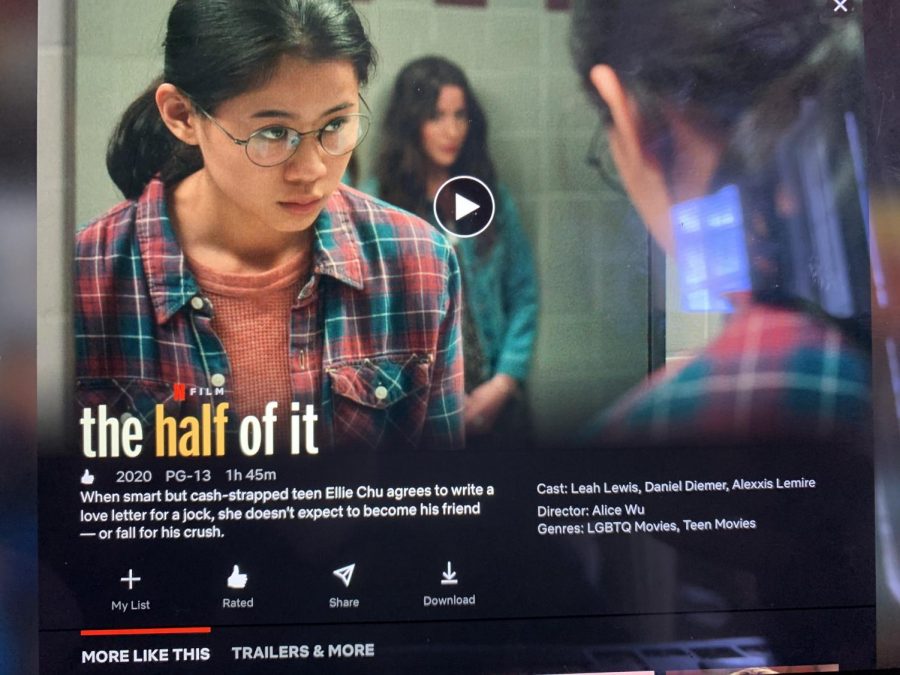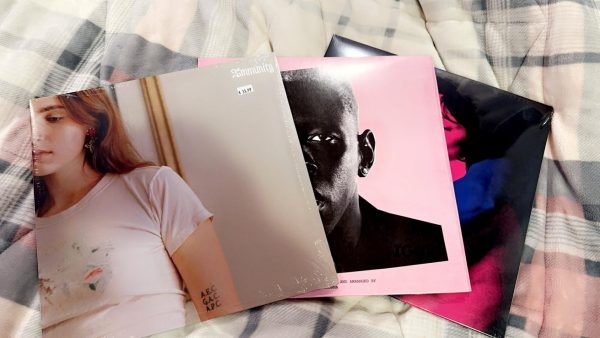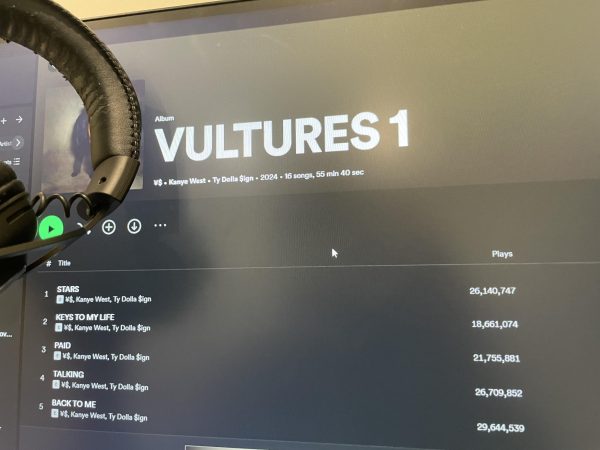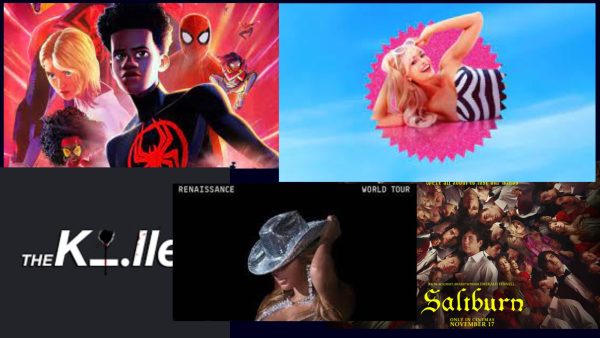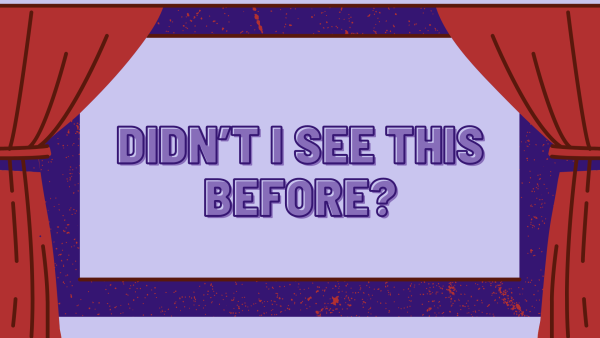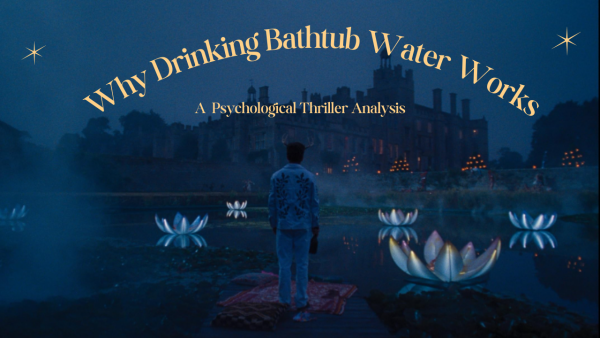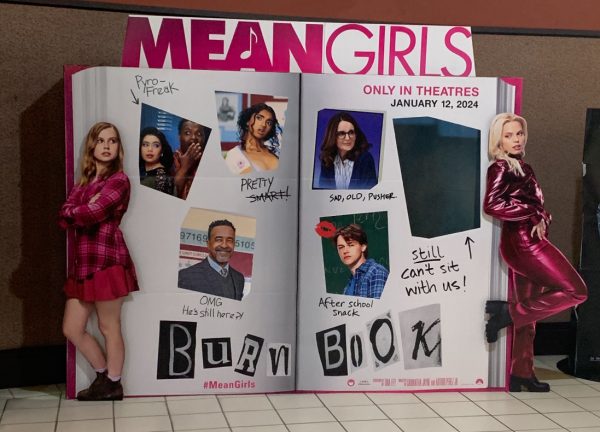The Half of It: the perfect way to kick off AAPI month
The Half of it is more than just a love story. It’s a story about a girl who finally finds herself after years of not knowing who she was.
Warning: Spoilers Ahead!
When I watched the trailer for Alice Wu’s latest film The Half of It which made its debut on Netflix on May 1st, I felt like it spoiled the entire movie plot because it was less of a preview and more of a summary of what happened. I didn’t expect to get anything out of the movie once I decided to watch it. But I was completely wrong.
The plot is a modern take on Edmond Rostand’s Cyrano de Bergerac where the same storyline can be recognized in other movies like Sierra Burgess is a Loser, but this time, it serves as one of the most unique versions of it. In this case, the movie revolves around an introverted, Chinese-American straight-A-student Ellie Chu who has created a small successful business in writing her fellow peers’ essays. She’s the brightest in her class and even her English teacher knows about her side job, but she allows it anyway because she doesn’t want to bother reading horribly written ones. Due to her insanely good writing skills, she gets paid by a not-so-great-at-football-but-football-jock Paul Munsky to ghostwrite love letters, so he can shoot his shot at the school’s most popular girl Aster Flores. But perhaps he’s not the only one crushing on her because it turns out that Ellie has feelings for her as well. At first, she promises one letter, but it eventually leads to multiple letters and a lot of text messages. She even scores him a few dates. The story is set in a small town called Squahamish where everyone is relatively religious and predominantly white which makes Ellie an outsider because she’s neither of those. The film explores race and queerness which makes it unlike any other movie.
I instantly fell in love with the well-crafted cinematography. I couldn’t keep my eyes off the screen. The beginning was the perfect way to introduce the main element of the film: the letters. It was simple, but it was enough to draw me in.
Initially, I felt like the characters were going to be trite or that the movie was going to be in a typical high school setting with the outcasts and the popular crowd. Despite the fact that it did involve those types of characters, it was displayed in a way that was almost refreshing. The “popular” people were exaggerated—as usual—but not to the extent where it felt like it was too dragged on or too unrealistic. I mean, the popular girl, Aster Flores, was dating a self-centered guy, Trig Carson (also, who names their kid Trig?), and was in an odd friend group where all the girls dressed similarly and acted a cliquey. How cliché can it get? It’s unrealistic to see that type of stuff in real life—perhaps maybe the self-absorbed boyfriend because I feel like we’ve all seen that before. But even with this, there was some sort of unique twist: the “popular” girl was somewhat introverted, enjoyed hiding deep in her books, and remained on the sidelines for whatever type of shenanigans her boyfriend was up to. She had problems of her own, but she remained kind to everyone. She wasn’t your typical popular girl in every movie who was overly outgoing and pushed everyone aside because she felt entitled. She was actually a nice person and I was all for it.
The main character, Ellie Chu, finally represented your typical Asian teenager. I didn’t completely relate to her, but I could truthfully say that she represents a decent amount of Asians I know. I loved the idea that her Chinese culture was kept alive; she speaks Mandarin to her father who is struggling to find a job, despite having a Ph.D. in Engineering, because he has a thicker Chinese accent that employers find hard to understand. Speaking of that, she also has to help him pay his bills because the people on the other end of the phone call can never understand him. He watches movies to try and learn English, but it’s not necessarily working out. She and her father are also immigrants from China and perhaps it was just a small detail that doesn’t have much meaning, but I enjoyed the fact that she wasn’t fully Americanized. She’s also bright and musically talented. There was no part in the movie where I felt like she could’ve related to Asians more.
Although the movie was highly relatable to the general audience, it also managed to go against so many stereotypes and status quos. For one, Ellie is gay. Talk about being 3 types of minorities: an Asian female who is gay. There are rarely any movies or shows that can represent so much. She also enjoys literature and English in general. Unlike any other Asian character in other shows or movies, she wasn’t the mathematician that everyone expects Asians to be. Her dad is also a widower which is not something that’s impossible, but it’s the opposite of what perfect families are often depicted as: a wife and a husband who are happily married with a kid or two.
The film made me realize how much I really wanted a letter written to me. It brought together “old fashioned” letter writing to the modern-day text messaging, and it proved that words are still powerful enough to bring two people together no matter where it’s written.
As Ellie continues to hide behind the love letters and text messages, she realizes how similar she is to Aster which makes her fall in love with her more each day. She also begins spending more time with Paul and gets very close to him. He tells her about how he wants to continue his family’s sausage-making business and possibly get his bizarre dish called the Sausage Taco, which Ellie and her father love, famous. Ellie succeeds in setting up dates with Paul and Aster, but they end up being extremely awkward every time.
I never experienced second-hand embarrassment this often until I had to witness Paul Munsky, an awkward and hopeless romantic, attempt to attract Aster. It honestly gave me pain watching him try so hard, and I felt extremely bad for him, but it was also kind of relatable. Paul has no idea what love is; he loves Aster for superficial reasons, unlike Ellie who loves her for her thoughts and small quirks.
Slowly, as Ellie continues writing letters and sending text messages, Aster begins to fall more in love with Paul–technically Ellie, but she doesn’t know that.
One day, Aster randomly invites Ellie to some nearby hot springs. They fall into deep conversations, something Aster never gets to do with anyone she knows, and it’s the closest Ellie will ever get to be with her. They talk about God and Aster’s faith. Ellie admits that she doesn’t believe in God and Aster thinks it’s nice, but Ellie says,”It’s not. It’s lonely.”
With the number of times, Ellie made it obvious that she liked Aster, I thought Paul would get the hint. Too bad he’s very clueless. It took him until the end, after getting to know her when he realized he had feelings for Ellie and attempted to kiss her after his football game. This was typical. In every movie, the jock always realizes that they love the underdog characters. Of course, she rejects the kiss because, well, he’s not who she wants. Aster sees everything and runs off which puts Ellie into complete panic mode, making Paul realize that she’s not who he thought she was.
Considering the town is extremely religious, the idea of someone being gay was out of the picture. Paul tried to deny it and ignored Ellie for a while to the point where Ellie’s dad felt the need to confront him… in perfect English. In that moment, he revealed his relationship with Ellie’s mother. He says something along the lines of you can’t change the identity of the person you love. Since the beginning of the movie, Ellie’s dad kept himself quiet and didn’t attempt to get in his daughter’s business, but when he realizes how heartbroken she is, the same type of heartbreak she felt when her mom died, he finally comes forward for the sake of his daughter’s happiness. I love this scene because it finally revealed who her dad actually is and how much he truly cares for Ellie.
After that conversation, Paul starts to realize that Ellie is who she is, even if it goes against the Bible, and he ends up being friends with her again.
At church, Trig proposes to Aster and is stopped by Paul who actually doesn’t mess up with his words too much. They ignore him and continue with the proposal, but are interrupted by Ellie, who reveals that she’s the one who’s been writing the letters to Aster. She still remains closeted to everyone else in the town. Aster gets angry and storms off.
Fast forward to the end, Ellie meets Aster at work and tells her that she’s off to Grinnell, her dream school, and Aster says she’s planning on attending art school. Aster claims that she’ll know who she is in a couple of years, and Ellie denies it. As the two go their separate ways, Ellie runs back and kisses Aster and says goodbye for one last time.
This scene showed how confident Ellie became after confessing what she did. For the entire movie, Ellie always hid behind everything. When she finally “came out” (yes, but not really), it was the beginning of a new Ellie.
Overall, I loved how the storyline was set up. It wasn’t your average love story—it was more of a coming of age story rather than a love-related one. The love letters were more than just deep discussions about books, there was another side to it—the other half of it. The other half of the letters was a girl, not a boy, who was madly in love with another girl who was completely out of her league. Ellie didn’t know what love was at first. She didn’t believe she was capable of love or receiving love from someone else, especially Aster. Although Aster thought she was falling in love with Paul, she was actually falling in love with Ellie. Whether or not Aster may actually be gay or bisexual, their love was truly emotional; it wasn’t superficial because they both fell in love with the souls that were in the letters, not the faces of those writing them. Their love was created from words that came from their hearts, and that was powerful.
Wu chose not to end the movie with Aster and Ellie being together, and I thought it was a great decision. Ellie was finally free, thanks to the letters, Aster, and even Paul. She isn’t the isolated girl anymore, she’s now confident and off to follow her dreams. The letters made her vulnerable and able to fall in love for the first time. They allowed her to recognize that there is a life worth living after all and I think that’s essential for every love story.


